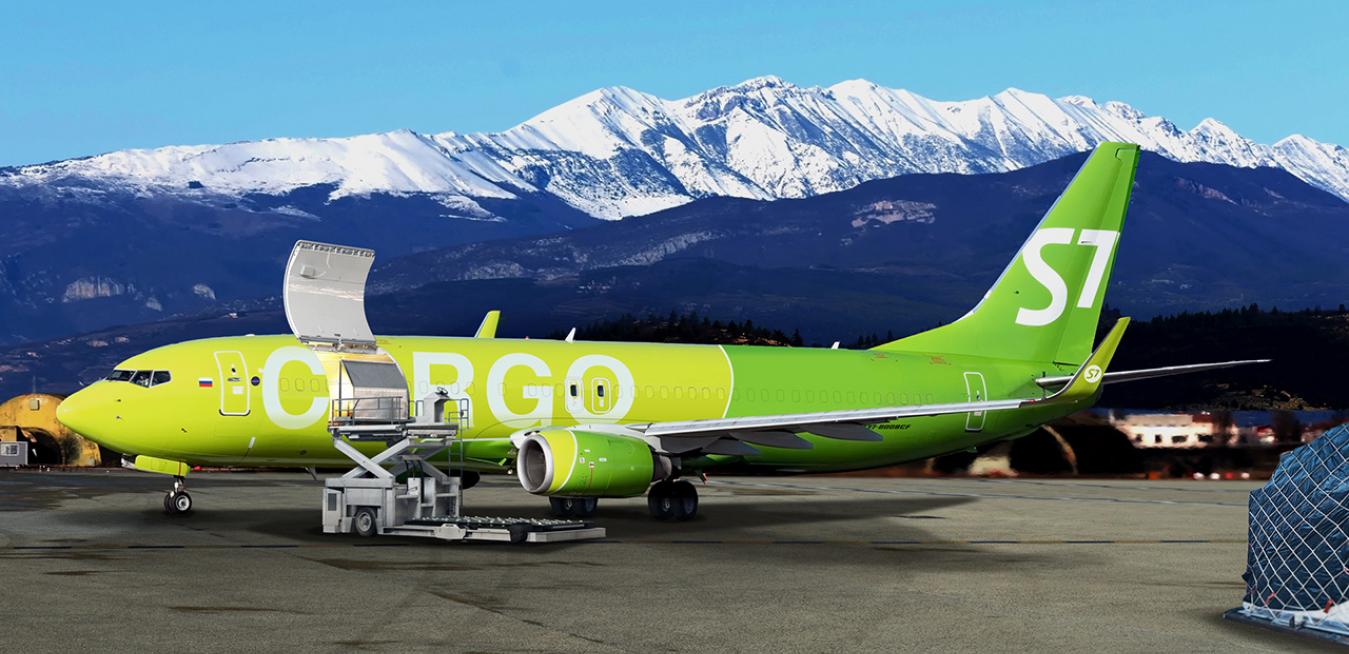ROOM TO GROW
The luggage that passengers check during an airplane trip goes into the plane’s belly — but it’s not all that’s kept down there. For decades, airlines have sold excess space in passenger jets, whose cargo hold can account for up to a quarter of the plane’s cubic footage, to customers looking to ship everything from electronics to mail. So when travel ground to a halt in March, the freight industry, which has entire fleets of planes designed for cargo, found itself with a new demand on its hands. Put another way: Opportunity knocked and the cargo doors opened.
Flight change: “Where we were sitting in the cargo business at the beginning of the year and where we are today, no one could have possibly envisioned such a night-and-day difference,” said Jeff Glaus. Glaus works for GE Capital Aviation Services, which was already bullish on cargo. In 2015 GECAS teamed up with Boeing to start converting passenger jets to cargo planes to meet a growing need. That process looks somewhat like you’d imagine: Workers yank out seats and install, among other things, a much larger door. Now passenger airlines are also getting into the game: Recently S7 Airlines, the largest privately owned airline in Russia, leased its first two 737-800 Boeing Converted Freighter aircraft from GECAS. Even when passenger travel does pick up again, said GECAS Senior Vice President Alex Plats, “these steps will help S7 Airlines accelerate their insertion into the cargo market.”
Read more here.
SPECIAL DELIVERY
Speaking of cargo planes, they’re expected to be needed soon for one very big job: delivering a COVID-19 vaccine the moment one is approved. In a statement released earlier this month, the International Air Transport Association (IATA) urged governments and industry to begin preparation now. According to IATA’s estimates, shipping a single dose of a vaccine to each of the world’s 7.8 billion people would require the use of 8,000 747 cargo aircraft. Of course, all those doses won’t have to go by air; land transport will be another option, particularly in developed countries with manufacturing capacity. But it’s crucial to get the wheels rolling now, said Alexandre de Juniac, IATA’s director general and CEO: “Safely delivering COVID-19 vaccines will be the mission of the century for the global air cargo industry.”
Read more here about the global challenge.
ALL BOTTLED UP
Lightning is famously hard to capture in a bottle, but oxygen can be tricky too. And right now, bottled oxygen is in particular demand to treat patients suffering from COVID-19. Many developing countries have found oxygen expensive and in short supply — but that hasn’t been the case in the Amhara region of Ethiopia, home to not one but two generation plants in the towns of Bahir Dar and Dessie. In a case of uncannily good timing, the plants were commissioned last year thanks to a collaboration between Assist International, a nonprofit that builds schools and healthcare facilities in Africa, and the GE Foundation. As COVID-19 spread around the world, the Amhara area found itself in good stead: The two factories are now capable of bottling roughly 240 canisters of supplemental oxygen per day, supplying more than 90 nearby hospitals.
Breathing easier: Assist International has been pushing to build oxygen plants in Africa for several years, inspired by a 2015 World Health Organization resolution. Even before the pandemic hit, said Jim Stunkel, Assist International’s director of program operations, doctors in Ethiopia were already “seeing a reduction statistically in mortality rates directly related to pneumonia and other things that can be solved just by the availability of medical oxygen.” Having built the plants with the assistance of the GE Foundation, Assist International plans to transfer management by 2023 to a local group, Stunkel said: “The concept of providing aid to countries that are in need is critical, and the sustainment plan is key to long-term success.”
Learn more here about the new plants — and about the complicated process of bottling oxygen.
— QUOTE OF THE DAY —
“With the disappearance of the passenger fleet globally, belly cargo space disappeared as well. So, anyone who has the capacity to carry cargo is the king of the road.”
— Alex Plats, senior vice president of marketing for GECAS
Quote: GE Reports. Images: S7 Airlines.





